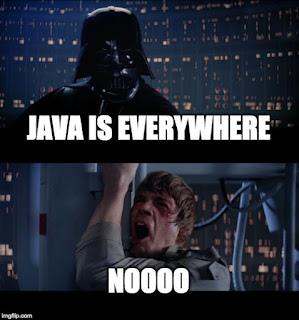 The flexibility of Java turned into an easy to run application for Windows. If you are interested in compiling your Java-based software into native Windows applications, then you probably looked into options such as GCJ and wrappers. The problem is that GCJ is more like a myth nowadays where it is not clear if that thing works and wrappers, well. They are wrappers.
The flexibility of Java turned into an easy to run application for Windows. If you are interested in compiling your Java-based software into native Windows applications, then you probably looked into options such as GCJ and wrappers. The problem is that GCJ is more like a myth nowadays where it is not clear if that thing works and wrappers, well. They are wrappers.There is an alternative. A way to compile Java code directly into x86 binaries that run under Windows without needing .NET or any other intermediate platform. You are welcome to enter the world of Mono and IKVM.
You should read this page:
http://www.mono-project.com/docs/about-mono/languages/java/
The first step is compiling your jar file into a .NET executable using IKVMC, this is as simple as downloading the most recent tools from:
http://weblog.ikvm.net/default.aspx
Attention: these tools only run on Windows 7 and above (you can likely run in XP by installing a modern .NET version).
Then place your jar file inside the .\bin folder. Head out to the command prompt on that folder and type:
ikvmc myApp.jar
Where "myApp.jar" is obviously the jar you want to transform. If you have additional jars to be added as classpath, look on the syntax page for instructions. On my case I already ship a "fat jar" where every other jar files get merged into a single one in any case.
The compilation will likely show you that some classes are missing, that is mostly references on the code for things that were not found. On my case none of them were used so not really a problem, they were just warnings and you get a Windows .NET executable as output.
When running for the first time it failed. Was complaining that the a java.util.date method was returning a null value. There is something to know about IKVM, it is an implementation of the JVM but it is not perfect. So you might need to adapt slightly the code so that it doesn't touch on the methods not supported by IKVM. On this case, I just removed the part of the code that was failing since it was not critical and then everything worked.
Now you have a .NET executable.
You will need to ship it together with some of the IKVM dll files. The minimum files to include are IKVM.OpenJDK.Core.dll and IKVM.Runtime.dll. However, you might need additional DLL files from the IKVM distribution depending on the functionalities that you are using. This is mostly a trial and error approach until you find which files are really needed. The end result is that you get an executable that you won't need to ship with a JVM or ask end-users to install one (under Windows).
The final step in case you are interested, is to remove the .NET dependency. This might be useful for the cases where you want to run on bare-metal Windows from older versions such as Windows 95, all the way up to newer versions where x86 code is supported. That is where Mono helps. Take a look on this section: http://www.mono-project.com/docs/about-mono/languages/java/#compiling-java-code-to-x86-code
Taking the executable created on the previous steps, basically install the Mono setup (about 1Gb of disk space after installation) and type:
mono --aot myApp.exe
This will generate a set of files, refer to the previous link for additional details. Hopefully making your app run completely native under Windows. I'm yet to test the performance of native x86 Java binaries vs the bytecode versions running on the JVM. My initial expectation is that the Oracle/OpenJDK JVM is faster because but this might be a false impression. If you manage to test the performance just let me know.
Have fun! :-)